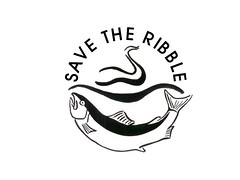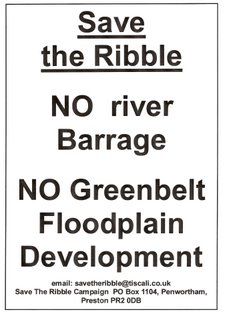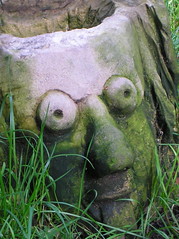Fracking along the Ribble
UPDATE on Fracking in Lancashire:
We will be joining other residents along the Ribble in keeping an eye on the situation as, despite calling a halt to the fracking process at Preese Hall on the Fylde while investigations are carried out into the tremors in the Blackpool area, the drilling activities are continuing, as are plans to drill on the South side of the Ribble in the Banks area between Preston and Southport. See the Southport Visitor for more on this.
There is a well-organised campaign against Fracking on the Fylde, so do check out their blog http://dont-frack-with-the-fylde.blogspot.com/ for further information and to find out about any further developments as they are leading the campaign against this highly controversial activity in the area: What the Frack?
~
Philip Mitchell from the Blackpool and Fylde Green Party gave a talk about the Shale Fracking/Coalbed Methane issues at Lytham YMCA, Mythop Rd, Lytham
Tuesday 22nd March (UN World Water Day) 7:30pm
The meeting was well-attended by local residents who raised significant conserns about the potential impacts of the fracking - not least to their fresh water supplies in the area.
Please sign the PETITION at www.ipetitions.com/petition/ukgas

Here's an interesting extract from Philip Mitchell's Parliamentary Memorandum:
"In Lancashire it has been reported that the Shale Gas field potentially reached from Blackpool to Pendle Hill, and in the DECC map includes the Forest of Bowland and extends to the West side of the Yorkshire Dales. This itself suggests a field of approximately 400 square miles, and on a purely commercial consideration would mean 100 gas wells extracting gas from a well 2 miles apart ( the approximate distance of the first three test wells in the Fylde). THIS IS A TINY PROPORTION OF THE POTENTIAL FIELD across the UK, .
The main risk and source of public outcry in the US has been the contamination of drinking water. In Lancashire the aquifers used in drinking cover this likely area of drilling and in the AJ Lucas press release [... ref attachments of evidence submitted to Parliament] re Preese Hall, Grange Hill, Singleton], appears to be in the location of the Aquifer [...ref attachments of evidence submitted to Parliament ] and Carbonate Rock. Purely commercial Interest would also mean many of the wells would be in the area of the aquifers.
The committee should also consider the risk of extracting 1 billion gallons of water from the surface water of the potential gas field in Lancashire.
The routes to pollution are multiple, and include leakage from the well, spillage from the site and handling of thousands of gallons of liquid which flows back from the well after fracking. The control mechanisms cannot be relied upon alone. I would also urge the committee to seriously consider the long term risks of deterioration of control mechanisms of the vertical well linings meant to protect the well from leakage.
When the liquid used for fracking leaks it has natural gas dissolved in it, this entering the water table has caused wells to explode and domestic water drawn from the aquifer to be inflammable and explosive.[...]
There is a need to dispose of the millions of gallons of highly toxic liquid flow-back following fracking and the committee needs to consider the risks of inadequate numbers of treatment centres to process this waste, for example in Lancashire on the basis of using up to 1 billion gallons of water for fracking. Contamination of water supplies and Rivers would be considered disastrous. This is already a huge problem in New York State and Pennsylvania.
The risk to locally produced food is serious. Contamination with the chemicals involved through any of the many routes of pollution will pose a threat to the farming and local food retail industry as well as the consumers.
The risk to wildlife and animals is huge. [ref attachments of evidence submitted to Parliament ].
There is also a risk of a well blowout which in a reported case spewed out explosive gas and polluting liquid 75 feet into the air and onto the ground for 16 hours. The area around for one square mile had to be evacuated and flight routes diverted.
Experiences in the Fylde
Experiences in the Fylde of the first three production test sites (Weeton – Preese Hall, Singleton and Lytham Moss Anna’s Road) Cuadrilla Resources. Cuadrilla Resources Limited gives its postal address in Lichfield, Leicestershire, UK. AJLucas describe their activities as only in the UK and Europe and that this has been the first time they have carried out "true" shale gas extraction methods (ref attachments of evidence submitted to Parliament ).
At Weeton , Preese Hall, the drilling is through "Clitheroe Limestone" [ref attachments of evidence submitted to Parliament ] whereas the Delaware River Keeper network wishes to ban drilling through" Karst Geology and Carbonate Rock"-
[Philip Mitchell here urges the committee to question Geologists on the significance of drilling through the rock quoted in the AJLucas press release e.g. to contamination of aquifers. ]"
You can read the whole Memorandum here and sign the PETITION at www.ipetitions.com/petition/ukgas and keep up-tp-date with the campaign to stop fracking in the North West here: http://dont-frack-with-the-fylde.blogspot.com/
~
















